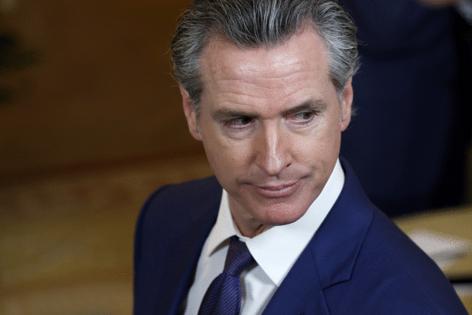California leaders tussle with health industry over billions of new dollars for Medi-Cal
Published in News & Features
Gov. Gavin Newsom, state lawmakers, and health industry leaders have a small window to reach an agreement on billions of new dollars for Medi-Cal before it’s put to voters in November.
An initiative, supported by virtually every sector of the state’s health care industry as well as the local Republican and Democratic parties, would lock in the money for Medi-Cal, California’s version of the Medicaid health insurance program for low-income residents. The funds would be used primarily to increase payment rates for health care professionals who serve Medi-Cal patients.
Newsom, a Democrat, initially supported using the money for that purpose. But after California’s fiscal situation darkened, he reversed course in May, proposing to divert most of it to reduce the state’s $45 billion budget deficit.
The money is from a tax on managed-care health plans that’s been around for two decades but has historically been used to offset existing state spending rather than support new investments in Medi-Cal.
“The importance of this ballot initiative is finally being serious about investing in the viability of the Medi-Cal system,” said Adam Dougherty, chief of emergency medicine at Sutter Medical Center in Sacramento. “The MCO tax literally touches every aspect of the Medi-Cal system, and it can’t be at the mercy of year-to-year budget crises.”
Michael Genest, a former finance director under Republican Gov. Arnold Schwarzenegger, noted that several ballot initiatives approved by voters in the past continue to narrow the state’s fiscal choices, including one that limits property tax increases and another that guarantees a large share of the state budget to schools.
“We do ballot-box budgeting in the state of California. We’ve done it forever. And everything we’ve done in that regard has turned out to be very hard on fiscal stability,” Genest said.
It’s possible that the Coalition to Protect Access to Care, made up of doctors, hospitals, health plans, and other medical providers, could settle their differences with state leaders before a June 27 deadline to withdraw the initiative.
Newsom’s desire to claw back most of the promised money puts him at odds with proponents of the initiative, many of whom have long counted themselves among his allies. Elana Ross, a spokesperson for Newsom, declined to comment on the status of the initiative.
In May, Newsom proposed using about $6.7 billion previously earmarked for Medi-Cal pay hikes and some other health care priorities, mostly in 2025 and 2026, to offset existing state spending. His proposal would retain Medi-Cal payment increases totaling around $300 million a year for some primary care, mental health, and maternity services.
...continued
©2024 KFF Health News. Distributed by Tribune Content Agency, LLC.







Comments